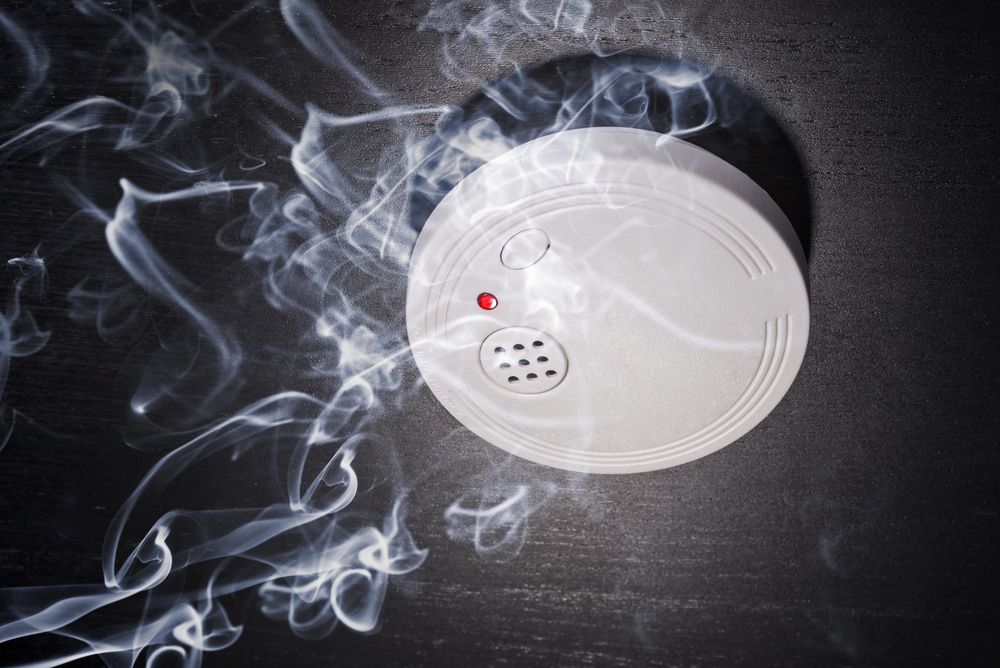
08 Nov The Different Kinds of Smoke Detectors
As a homeowner, you want to do everything in your power to ensure you and your family are kept safe at all times. Well, one of the most important systems to have in your home, also happens to be one of the smallest — your smoke detector. There are three major types of smoke detectors to keep in mind. Knowing about each type will help you decide which would best suit your home!
Types of Smoke Detectors to Have in Your Home
Ionization Smoke Alarms
For quick moving, flaming fires, this alarm reacts faster than other types. It easily picks up small particles from smoke that float through the air. Within its internal sensing chamber, it uses some radioactive material in order to ionize your air. These are the most common for homes and these are the ones that react to burnt food or steam. Try to avoid keeping these in kitchens or bathrooms.
Photoelectric Smoke Alarm
These alarms use LED light to pick up smoke within a room. Once smoke particles reach the light and cause a break in its shine, the alarm will trigger. These types of detectors are best with smoldering fires that can create excess amounts of smoke with little noticeable flames.
Dual Sensor Smoke Alarms
This alarm holds both photoelectric and ionization sensors within one unit. Although not commonly used anymore, this device requires both senses to detect smoke before alarming you. This could delay the sounding of the alarm, but most systems have been updated to only need one to detect smoke before going off. Some even lean more towards one sensor type over the other, while still holding both.
It is smart to have at least both ionization smoke alarms and photoelectric smoke alarms. The photoelectric-type alarm doesn’t cause as many false alarms, while ionization-type alarms pick up on smoke faster. You can even interconnect your alarm systems if they are from the same manufacturer! This way, you can ensure the technology is working to protect you and your family.
If you’re unsure if you have the best smoke detector possible to keep your family safe, contact us to learn about your options!

